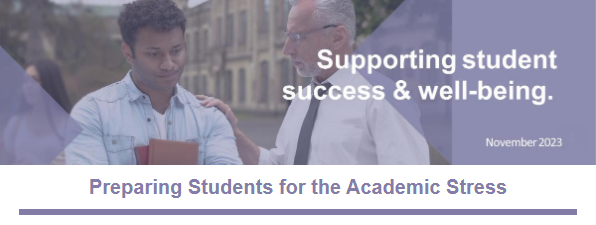
| November begins a period of intense activity for students across the country. Between the Thanksgiving break and the start of the winter holidays, students must face one of the most challenging periods of their academic lives: finals week. At the end of the term, when students take their final examinations and turn in their course-long projects, many students may feel stressed out by the intensity of their studies, worry about maintaining their grades, and be afraid of what might happen if they miss the mark. When scholarships and future professional opportunities hang in the balance for so many, it’s easy to see why finals week can be an overwhelming experience. When it comes to feeling overwhelmed, there is an entire spectrum of behaviors available to students. For some students, they may lose track of time, forget to maintain their hygiene, or subsist for days on junk food alone. For other students, they may misuse study drugs, experience severe anxiety, or even suffer a complete emotional breakdown from the pressure to perform. Helping students prepare for the challenges that develop as the term ends will help them to make the right choices when it comes to how they manage their time, their studies, and their emotional health. Here are some recommendations you can share with your students to encourage them to start preparing for finals week: Don’t wait: The sooner students start readying for finals week, the better prepared they will be for when it arrives. Schedule study time first: Students should make sure they designate study times in their schedules before adding any non-academic and lower-priority responsibilities and tasks. Learn the material, don’t memorize it: While a study guide might be helpful, if there are concepts that students struggle with, they should create personalized study guides that help them better understand weaker concepts and how to apply them to the material they’ve already learned. Prepare for the right exam: If students are taking written exams, they should practice writing different concepts and developing ideas that easily connect to each other, so they can clearly present their knowledge. If taking a multiple-choice exam, it’s important to learn the material in a way to be able to quickly identify correct answers from wrong answers. Make it a game: Gamifying study times can have surprisingly effective results. Students should look for ways to create challenges, score points, and create win/loss scenarios that reward performance and make each new study time more engaging. Team up: Students should work together as often as possible to help each other deconstruct difficult concepts, quiz each other on class material, and support each other ahead of their exams. Having teammates during this difficult time can help students feel supported, organized, and motivated to succeed. Take short breaks: A 20-minute break is enough time to disengage from studies, clear the mind, and recharge. Meditating, playing a game, going for a walk, or having a conversation with a friend are all great ways to get some distance from one’s studies and properly reset. Get plenty of rest: With proper planning, students will be able to manage all their tasks and needs–including having enough rest at night to stay focused and perform during the day. While it might be difficult to get a full night’s rest, students should strive for at least 7 hours of sleep each night. |
| WellConnect provides confidential consultations with a licensed professional for faculty and staff regarding student problems or concerns. In addition, our team is available to discuss behavioral and classroom management issues. If a student comes to you with a situation and you’re not sure what to say, please call our 24/7 FAST-Line at 844-208-7070. The FAST (Faculty Administrator Support Team) Line can be a valuable resource for navigating complex, sensitive or high-risk student situations. Our counselors will consult with you on the situation and help you develop a plan to assist the student. Of course, you can give the student the WellConnect student number, 866-640-4777, and encourage them to call, or even dial the number and hand the student the phone in a location where they will have privacy while talking to a WellConnect counselor. Working collaboratively, we can help students achieve their personal, educational and career goals. |